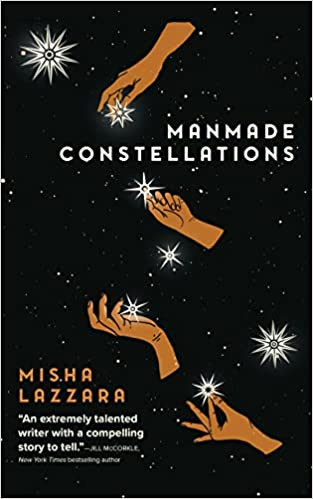εκατό, centinaio, 百, നൂറ്, مائة, ikhulu, haneli, centum, hundert.
This week we’re talking about the big 1 0 0.

This is the 100th newsletter I’ve sent out! My kids’ school always hosts a 100-days in event, so I figured I’d also set the time aside to focus on the milestone.
This week’s newsletter is going to be a little different because I want to focus on the prompts.
Trust me, I know it’s not always easy to actually grab the journal and set aside dedicated time to work through the writing prompts, but there’s something so healing, fun and freeing in putting pen to paper and letting the words flow.
Besides, we’ll expand our repertoire today and think about other creative acts centered around the numero cien.
Here are a few prompts to get you started:
List one-hundred things you want to do before you turn one-hundred. Here are a few of my loftier visions:
Become fluent in a foreign language
Get dual-citizenship somewhere
Write somewhere near twenty books
Take oboe lessons
List one-hundred things that irritate you.
That everything comes in single-use plastic
That learning a foreign language fluently is so complicated
Not being able to fall asleep or fall back asleep
My lack of technological wherewithal
List one-hundred things you’re grateful for.
Musicals
Indoor plants
My husband
Those old-fashioned strawberry candies wrapped in the paper that looks like an actual strawberries
These lists are a fun way to externalize some thoughts, feelings and impulses in your own life, but they’re also a useful way to help us begin to notice and name the world around us. It might be difficult to name one-hundred things that annoy us (or maybe not). Maybe it’s the gratitude that comes easier (or maybe not).
At NC State, my professor Belle Boggs offered us a list-making exercise. We read a couple excerpts from novels that included a narrative or dialogic list. Some were funny, some were dark or serious, but it’s a useful tool in the writer’s or poet’s toolkit to allow the speaker, character or narrator to offer us a quick and successive list that offers us a lot of insight in a little package.
Let’s say you have listed out one-hundred irritations.
Now, peruse the list and determine whether five or so of the items can be grouped into a category. Perhaps you listed a number of bad TV shows or reality stars that grind your gears. Perhaps it’s a collection of food items, behavioral flaws or specific smells. Once you’ve determined at least one category of dislikes, ask yourself whether it’s worth exploring in an essay or list poem. What do these things have in common? What does it say about you, your upbringing or how you view the world? What about these items? Is there any use following a trail of curiosity about their history, meaning or role in society? See what comes up.

One-hundred years ago was 1923.
What was happening in the world then?
If you or someone you love has diabetes, you might be interested to know that insulin was invented in the year 1923. Also, Mount Etna erupted, destroying nearby villages and stations. The Great Kanto earthquake struck in Japan and certain accounts suggest it may have lasted for up to ten minutes in certain areas with a magnitude of near 8.0 on the Richter Scale.
Is there a part of the world that has always interested you? Your hometown? Rural Albania? The Tibetan Plateau? The Bering Strait? Do some research on what life looked like in 1923 around the world or in a specific spot on the map. Who were the world leaders in the aftermath of WWI? What were the woes, heartaches and wrongdoings in the world then? Is it worth bringing back some of that history so that it isn’t repeated? Conversely, what was being celebrated (like the advent of insulin)? What great works of fiction or poetry were being published worldwide?
Kahlil Gibran’s The Prophet was published that year; Jean Toomer wrote Cane, Robert Frost wrote the famous “Stopping by the Woods on a Snowy Evening.” György Lukács, who wrote History and Class Consciousness, had the text published that year, and a line from that book happens to be quoted in my novel Manmade Constellations. Peruse the list here.
If you haven’t spent time with literature from the past, perhaps now’s the time to reconnect to the ‘classics.’ (I use the term classics and canon lightly because we need to ask ourselves who was deciding what was being published and what was deemed a classic for so long?)

What about 2123?
Where are we headed? I, for one, can’t even begin to imagine. But of course, we love Philip K Dick, Octavia Butler, Margaret Atwood, Aldous Huxley, Kim Stanley Robinson and more. Even if their versions of the future are bleak or downright frightening, we can appreciate the insight, the warning, and at the very least, we appreciate the entertainment.
What do you imagine for us in one-hundred years? What are you basing your future predictions off of? A series of alarming news stories, a new wave of technology, the fear of another pandemic, religious intolerance? Perhaps you have a pure faith in humanity’s ability to right this ship called earth? Or perhaps you think we’re headed toward the moon like in Emily St. John Mandel’s Sea of Tranquility.

And finally, we’re going to look at our rituals, practices and collections.
What in your life have you done 100 times? List out a few things:
Drank over 100 cups of coffee (well over)
Changed over 100 diapers (well over)
Wrote over 100 pages (well over)
What are a few things in your life, let’s say three-five, that you haven’t done 100 times but would like to:
Haven’t visited 100 countries but would like to!
Probably, truthfully, haven’t meditated 100 times but would like to!
Probably haven’t written 100 poems but I’m likely close!
Do you own 100 of something?
Something lovely like flowers in your yard or 100 loose-leaf drawings your children have given you. Think about it.
For each of these prompts above—the same thing can be asked of your character’s, narrator’s or poem’s speakers. Any number of premises or prompts lie in the questions: What irritates them and why? What are they grateful for in their lives, specifically. What sort of things, people and places interests them about the past? What shapes a character’s predictions for the future—fears, worries, hopes or dreams?
This week’s creative writing assignments:
Scroll back up and answer the prompts! Spend some time contemplating the idea of 1 0 0 . One-hundred joys, irritations, years or broken promises. Scroll on back to the top and write it all out!



